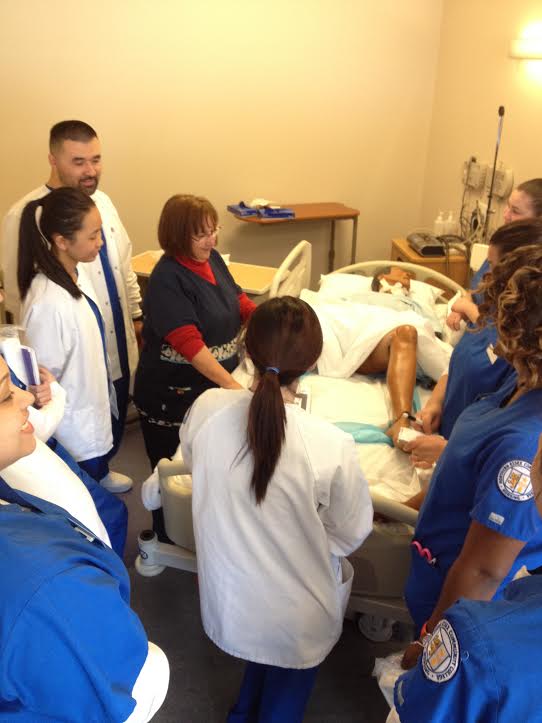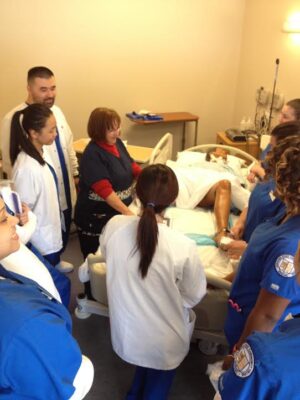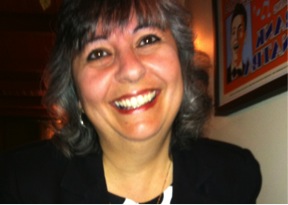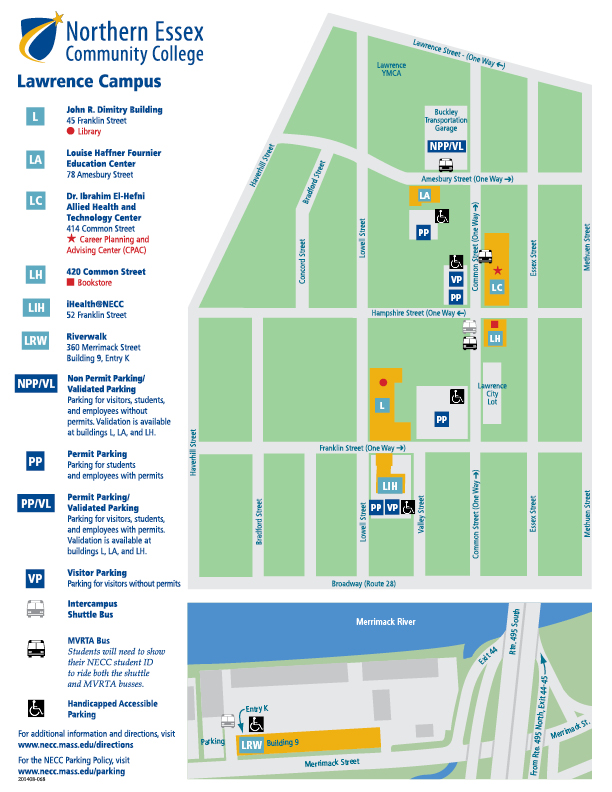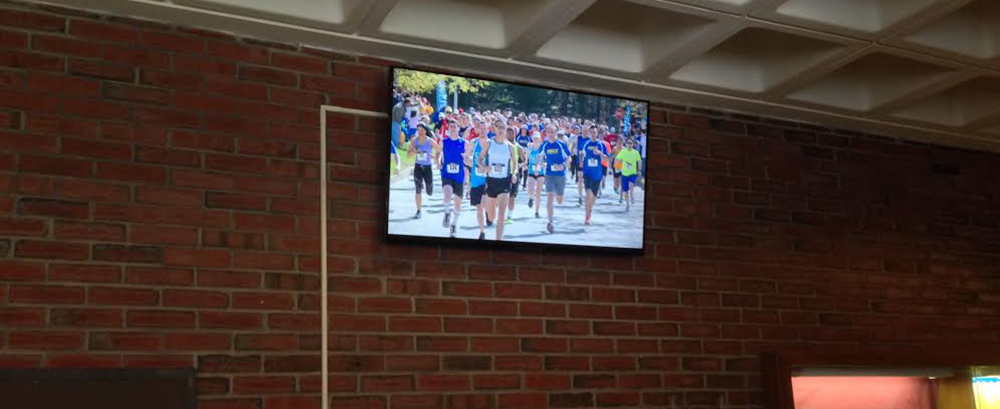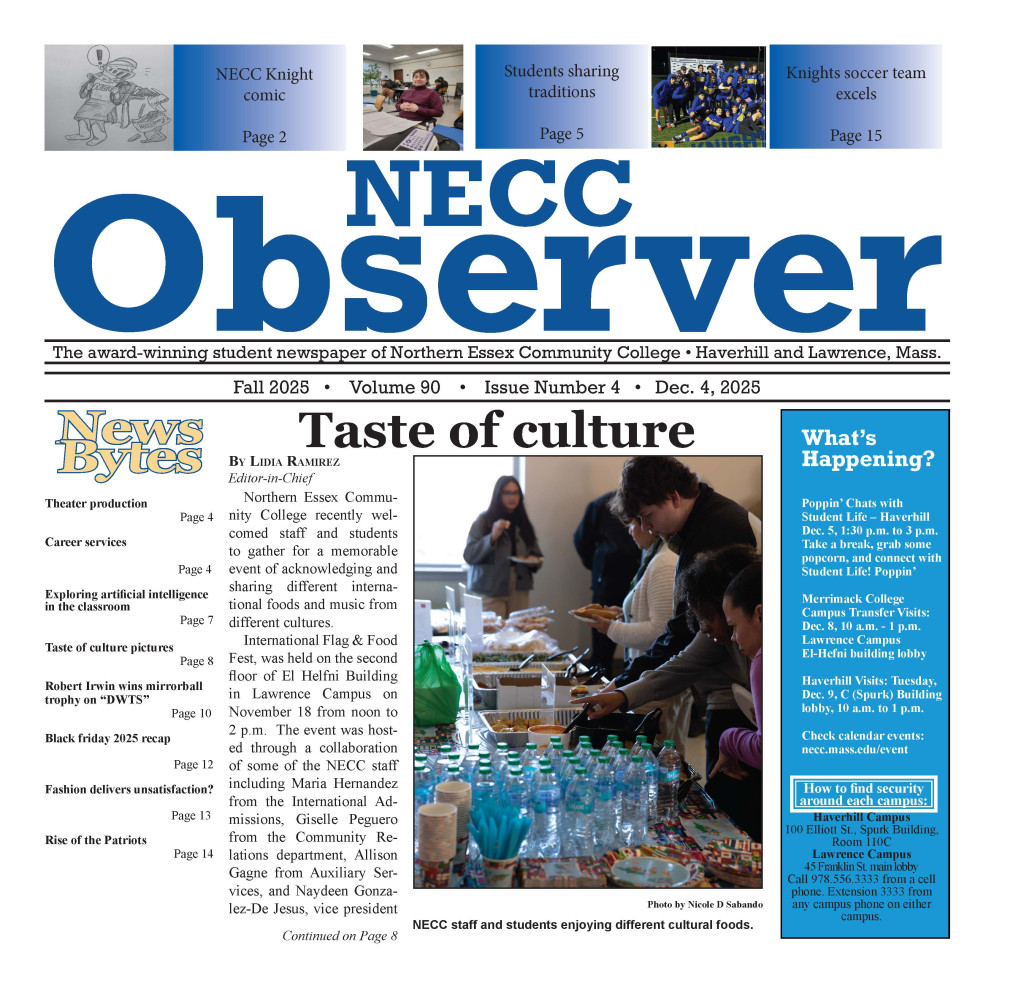There was a calm and respectful silence around a row of candles resting on a ledge of the Robert Frost Fountain on the night of Oct. 3 just Lawrence City Hall. Students and teachers involved with Bread Loaf Teacher Network stood together at the Border of Lights candlelight vigil. All over the world there were people quietly raising awareness of the injustice of the events that took place on Oct. 3, 1937 between Haiti and the Dominican Republic.
The vigil started off at the El Taller restaurant on Essex St at 7 p.m. Students that have been a part of the Bread Loaf Teacher Company stepped forward to talk about their experiences visiting Haiti, sharing written thoughts and emotional poetry about the treatment of Haitians, as well as hope for a more civil relationship between the two countries.
On Oct. 3, 1937 a massacre took place in which thousands of Haitians were rounded up in Dominican Republic territory and massacred. Estimates of casualties have ranged from one-thousand to twenty-thousand dead.
The vigil has been held every year for the past three years to commemorate those who died and to promote peace between Haiti and the Dominican Republic. Lou Bemieri is the director of Bread Loaf Teacher Network, an organization that works with Julia Alvarez, a Dominican-American author and influential public figure to organize the vigil each year.
“It raises awareness of two things: the massacre of the Haitians and the treatment of Haitians by government. It’s been hidden and buried and people don’t want to talk about it,” said Bemieri.
Nathan Baez, a Life Science major, stood in front of the room in El Taller reciting his deepest thoughts he had while in Haiti.
“We all have that idea of Haiti, you know it’s a third world country. Every day up until my departure somebody told me ‘oh be careful you’re gonna get sick or watch out you might get robbed,’ and before my trip I was kinda nervous. As soon as I landed I realized how much of a lie everything was. None of it was true, it was smiles everywhere. For the amount of poverty that goes on over there all the smiles I saw was amazing. It makes you question the poverty we face here in America.”
Baez shared his experience in prose.
“Sold me fruits in the morning, the taste of fresh pineapples and mangoes take my senses to a place only God can manifest. Yesterday was eye-opening. The linguistic workshop is proof that our written words and language hold power. As I led the journey down self expression the path is lit up by love, passion and pride of the people of Haiti. I am humbled by the culture that my grandfather was raised in and being on this island I’ve never felt more connected with my roots as a black man. I’m curious to what knowledge today will bring, what insight I may gain now open to the lessons I’ve yet to learn,” said Baez.
Baez’s experience in Haiti made a permanent positive mark on him as a student and person. “It’s an essence of remembrance, an event to remember what happened at the massacre of the Haitian people by the Dominicans. I mean, I’m part Haitian, actually being there changed my perspective on my culture, my skin,” said Baez.
Baez illustrated how profound of an effect being immersed in Haitian culture had on him in a poem titled “Who Am I.”
“I am the one who brings light from my dark vessel. I am the palm trees dancing in the wind, in the homeland of my ancestors. I am peace, personified in my daily actions. I am water, flowing through the rivers of change, nourishing the land and people who tend to it. Human like you, but unique like the codes of my DNA,” said Baez.
The way Baez expressed himself and his thoughts while in Haiti was reflective in his writing.
“I wouldn’t say improve, it just inspired new ways of thinking, new concepts to work into some of my writing, new perspective on my history. Before going to Haiti, I didn’t think it was possible that my family had ties to slavery. It [hit] home knowing that my grandfather’s great-great grandfather was a slave. At the same time, the slaves of Haiti liberated themselves. They took their freedom back. That’s the most inspiring thing about it.”
Another student who stood the speak was Marquis Victor, who shared a room with Baez in Haiti. His deep poetic thoughts earned snaps and a hushed silence as he spun his poetry into vivid stories of his experiences while in Haiti.
“Paradox. Internally combats switching sides, to use privilege, oblige use acceptance, oblige as gunpowder two punks sawed off and blast back like when the oppressor lined up dark skinned rebels with my bloodline. Sunshine shines on dry patches of red. In my head, I could be mahogany, ebony, a touch of burgundy.”
In my head, I could be a potato farmer yawning in the morning on the Irish countryside, pale skin spotted porcelain sent to the ghetto of New York, drinking ocean. Deep, thralling poverty like bad medicine inundated, sedated by the Anglican. Who am I but this ravenous history stirred in a pot. Who am I but the dark and the light reflected through a prison?” said Victor
Other students such as Mary Lozardo, who identified herself as a Dominican from Lawrence, shared her thoughts with the room from her experiences in Haiti.
“I will say, that I am shocked at how little we, and I do include myself in this because I still have so much to learn, my place, culture and people who are so close,” said Lozardo.
“I am nowhere near ready to say goodbye so see you soon. (in regards to Haiti) Last night I had to say goodbye to Christina and of course, I started to cry. I know this wouldn’t be our last time plus I keep it with me wherever I go but it’s still a bittersweet moment. She’s left in my heart. I still have so much to learn, I can’t even begin to describe how proud I am, all the education I’ve taken with me.”
Such opportunities for students to visit Haiti and experience such an empowering and educational experience is made possible through the Bread Loaf Teacher Network. The organization is based out of Pennsylvania with meetings held all over the country and world to make trips like this possible, as well as advocate social justice and promote education.
“We’re an educational network but we are really driven by social justice,” said Bemieri.
This particular vigil was held in Lawrence through both Bemieri and Richard Gorham, associate director of Bread Loaf Teacher Network and English Chair of Lawrence High School. Although the organization does not get a ton of funding, it still makes trips like this and educational experiences possible for students.
After both students and teachers spoke to the small crowd sitting in El Taller, they made their way with candles down Essex street to City Hall to hold the candlelight vigil in front of the Robert Frost Fountain. They took pictures and shared memories of Haiti while remembering those who lost their lives in the massacre.

